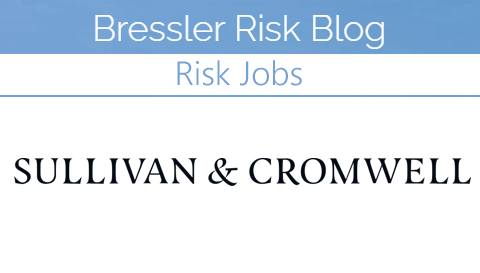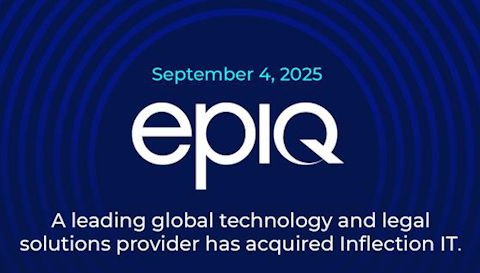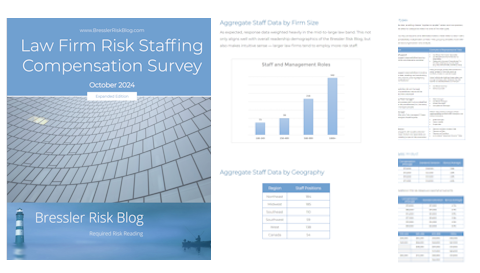Law Firm Risk — Firms Fight Over “Poached” Clients, Prospective Client’s Confidential Information Results in Disqualification, Reputational Risk Revisited
Posted on
David Kluft notes: “If I settle a dispute with successor counsel, is the settlement agreement a “fee sharing” arrangement?” —
- “CO Law Firm A accused Firm B of poaching its employees and its clients, and threatened to sue. The firms settled their dispute by agreeing that Firm B would pay Firm A 35% of the fees recovered from the poached cases.”
- “Firm B later argued that the agreement was unenforceable because it did not comply with Rule 1.5(d), which allows fee sharing only if both firms take responsibility for the case and the client consents.”
- “The CO court held that because the firms were not really fee sharing, but rather were better characterized as predecessor and successor counsel, Rule 1.5(d) did not apply so the settlement agreement was enforceable.”
- Decision: here.
As well as: “If I received information from a prospective client that used to be material, but it’s not material anymore, can I be adverse to them?” —
- “A CA law firm received a bunch of information about a trust dispute from a prospective client, including his intention to sue, his theory of the case, and documents supporting the theory.”
- “The firm later realized it already had a relationship with a probable opposing party and declined the case. When the prospective client sued the opposing party, the firm appeared for the opposing party.”
- “The prospective client moved to disqualify, arguing that he had provided material harmful information to the firm. The firm argued that the information wasn’t material anymore since it had been disclosed in the complaint.”
- “The CA Court of Appeal agreed that materiality should be determined as of the time of the requested disqualification, not as of the time the information was transmitted. Nevertheless, here the information transmitted included stuff that wasn’t already revealed by the complaint, so disqualification was affirmed.”
- Decision: here.
“Big Law’s Trump Deals Pose Ongoing Risks, Keker Leaders Warn” —
- “President Trump’s deals with Big Law firms pose ongoing risks to the profession, said leaders of a law firm that was among the first to criticize the pacts. There’s risk the White House will call on dealmaking firms to justify rolling federal troops into US cities or some other legally suspect tactic, said Steven Ragland, associate general counsel at Keker, Van Nest & Peters. The administration also may again use threats to bend law firms to its will, he said.”
- “‘When the bully says, ‘OK now it’s time to give me your lunch money again,’ what’s going to happen?’ Ragland said in an interview. ‘We will see what will be done and what sort of damage might be done.'”
- “Bloomberg Law’s wide-ranging interview Sept. 4 with Ragland and Laurie Mims, the firm’s managing partner, show that some legal leaders remain as concerned about the Trump deals as when they first spoke out against them more than five months ago.”
“In addition to the deals, Mims said she is concerned about Trump’s personal attacks against judges who have ruled against him. District court judges she knows have received ‘terrifying’ hate mail and threats, she said, without identifying those judges.” - “In the weeks after Trump’s attacks, Keker, Van Nest signed an amicus brief backing Perkins Coie’s fight against an order, senior partners penned an essay in the New York Times titled, ‘Our Law Firm Won’t Cave to Trump. Who Will Join Us?,’ and firm co-founder John Keker appeared in a ’60 Minutes’ segment where he called firms’ deals with Trump ‘bribery.'”
- “There’s a risk firms that cut deals with the administration could be perceived as having a conflict of interest fighting for clients against the government, Ragland said. ‘If I’ve basically signed on to not challenge the administration in certain ways, or that’s the implication, I don’t know whether it actually creates a conflict, but I think it is a concern,’ he said. “
- “Mims said the firm’s nearly 50 partners unanimously supported the decision to speak out. Clients ‘pretty universally’ responded well to the firm’s stand, and some new business came to the firm because of its stance, she said.”
- “‘There are still risks of losing clients or the government taking action against our firm or others,’ Mims said. ‘We’re aware the risks are there. But it was the thing we all felt we had to do. It was just such a clear violation of what we understand to be our constitutional system.'”
- “‘Our associates were united in thanking us for doing it and telling their friends, ‘My firm did this, how about yours?’’ Ragland said. ‘It’s only helped with our recruitment.'”
- “Keker in July hired associate JiLon Li from Paul, Weiss, Rifkind, Wharton & Garrison, one of the dealmaking firms, which has seen departures from its litigation group in the aftermath of its agreement, Mims said. ‘These firms have suffered a significant reputational hit with law students,’ she added.”









